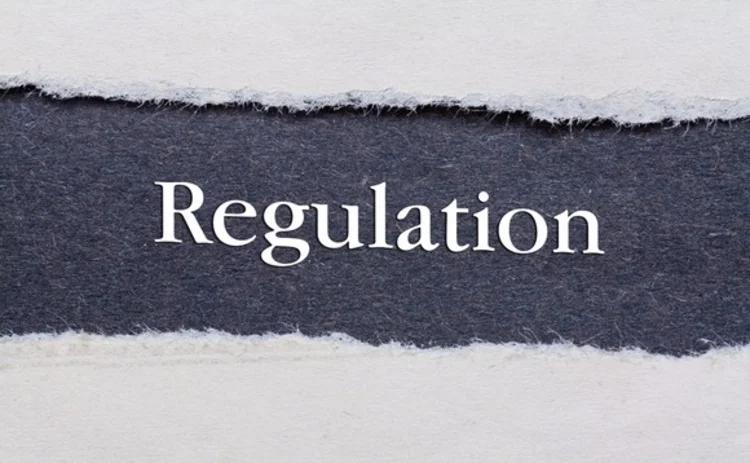Better Balance Needed to Combat 'Regulatory Fatigue'
Regulators need to be more concerned about properly spacing regulations as opposed to simply pushing their mandate.

The regulations won’t stop coming.
That was the message from US Securities and Exchange Commission (SEC) director of division of trading and markets Stephen Luparello at this year’s Securities Industry and Financial Markets Association (Sifma) Ops conference last week in Miami.
Last week I shared my thoughts on the hottest topics at Sifma Ops, but the one major trend throughout the entire conference was regulation.
This isn’t necessarily a surprise considering it was a conference for operations professionals, but it is worth noting that compliance is still one of the most pressing issues financial firms face.
Luparello’s panel discussion with Sifma’s Ira Hammerman, which you can read more about here, stood out to me above the rest.
Hammerman cut right to the point early, asking Luparello if his agency ever worried about regulatory fatigue. Luparello didn’t dodge the question, saying that while it’s something the Commission considers, it doesn’t influence decisions.
"We have an enormous mandate and so much of that mandate is overhang from things we were required to do by statute, whether it was Jumpstart Our Business Startups (JOBS), which is finishing up now, or Dodd–Frank, which is six years later and still not finished," Luparello said. "Under ordinary circumstances, I think our pace with rulemaking would be such that we would be putting these things out in even sequence with enough space where people aren't particularly feeling overwhelmed."
I understand the director’s point. They have a list of regulations that need to get passed and into the space. It’s not like they want to force-feed firms an endless stream of regulations. However, to me that seems like someone who can’t see the forest for the trees.
Proper Timeline
Luparello voiced his disappointment that the SEC is still implementing Dodd–Frank rules six years after the Act's passage during his conversation with Hammerman. I can certainly appreciate how tough it might seem to have a backup of regulations to get through, but simply pushing them off your plate and out into the industry doesn’t seem like the best approach.
Maybe the reason for the constant delays in firms adopting regulations is the massive number of compliance requirements, which continue to grow. If there were proper buffers between regulations, firms might be able to adopt them quicker and more seamlessly.
Instead, regulations are pushed forward and, in turn, firms push back against regulators, causing more delays.
That said, end users need to take a bit of responsibility as well. I imagine that even if only one new regulation was passed every decade there would still be complaints and resistance from firms.
But that’s certainly not the case now. Regulators are interested in pushing out their mandates, whether the industry is ready or not.
This week on the Waters Wavelength podcast ─ Episode 16: Sifma Ops, Nasdaq, Fixed Income
If you haven't already, subscribe to the podcast on iTunes here. Also, check out our SoundCloud account here.
Food for Thought
- In case you missed it, I profiled Nasdaq CEO Bob Greifeld. Check it out here.
- The Sell-Side Technology Award write-ups have also gone up. Click here to check them all out.
Only users who have a paid subscription or are part of a corporate subscription are able to print or copy content.
To access these options, along with all other subscription benefits, please contact info@waterstechnology.com or view our subscription options here: https://subscriptions.waterstechnology.com/subscribe
You are currently unable to print this content. Please contact info@waterstechnology.com to find out more.
You are currently unable to copy this content. Please contact info@waterstechnology.com to find out more.
Copyright Infopro Digital Limited. All rights reserved.
As outlined in our terms and conditions, https://www.infopro-digital.com/terms-and-conditions/subscriptions/ (point 2.4), printing is limited to a single copy.
If you would like to purchase additional rights please email info@waterstechnology.com
Copyright Infopro Digital Limited. All rights reserved.
You may share this content using our article tools. As outlined in our terms and conditions, https://www.infopro-digital.com/terms-and-conditions/subscriptions/ (clause 2.4), an Authorised User may only make one copy of the materials for their own personal use. You must also comply with the restrictions in clause 2.5.
If you would like to purchase additional rights please email info@waterstechnology.com
More on Regulation
Asic probe piles pressure on ASX to deliver Chess replacement
But market insiders think late intervention by regulators could even slow down implementation.
Stakes raised for UK bond, EU derivatives tapes after Ediphy clinches win
The pressure is on for TransFICC, Etrading, Finbourne, and Propellant Digital, who are still vying to provide the UK’s fixed income consolidated tape after Esma awarded the EU’s tape to Ediphy and its partners.
Doing a deal? Prioritize info security early
Engaging information security teams early in licensing deals can deliver better results and catch potential issues. Neglecting them can cause delays and disruption, writes Devexperts’ Heetesh Rawal in this op-ed.
SEC pulls rulemaking proposals in bid for course correction
The regulator withdrew 14 Gensler-era proposals, including the controversial predictive data analytics proposal.
Trading venues seen as easiest targets for Esma supervision
Platforms do not pose systemic risks for member states and are already subject to consistent rules.
The Consolidated Audit Trail faces an uncertain fate—yet again
Waters Wrap: The CAT is up and running, but with a conservative SEC in place and renewed pressure from politicians and exchanges, Anthony says the controversial database faces a death by a thousand cuts.
Exchanges plead with SEC to trim CAT reporting requirements
Letters from Cboe, Nasdaq and NYSE ask that the new Atkins administration reduce the amount of data required for the Consolidated Audit Trail, and scrap options data collection entirely.
EU banks want the cloud closer to home amid tariff wars
Fears over US executive orders have prompted new approaches to critical third-party risk management.








